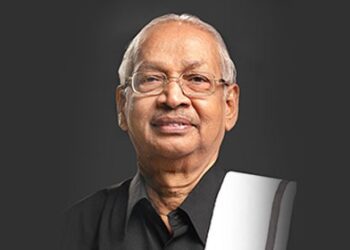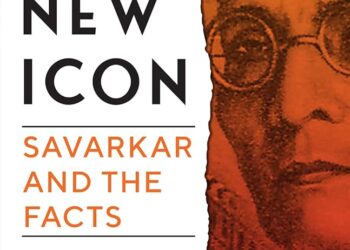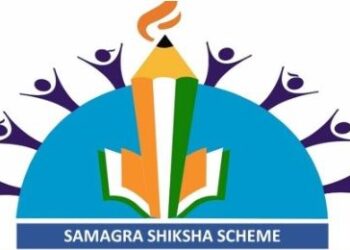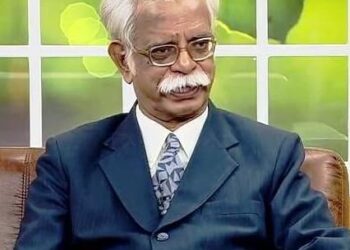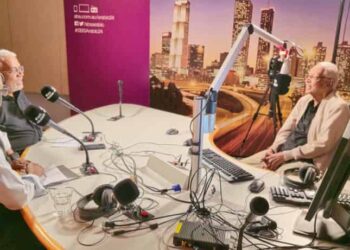On 12th December, 2024, the valedictory event of Vaikom Struggle Centenary Celebration was held at Vaikom itself in Kerala. The renovated Periyar Memorial and Periyar Library were inaugurated after formal felicitation to Thanthai Periyar. The Hon’ble Chief Minister of Kerala, Thiru Pinarayi Vijayan presided over the event and delivered a speech assuring his support for claiming the rights of states in the country. Excerpts from his address are as follows:
Dear friends, well-wishers and all the invitees, I deem it a great pleasure participating in the valediction of Vaikom Struggle Centenary jointly organised by our Government and the Government of Tamil Nadu. We recall the social injustice that prevailed in Vaikom hundred years ago. The downtrodden people in Vaikom were denied free movement on streets in the vicinity of Mahadeva Temple but Periyar and other agitators did not view it as a problem of the Malayalis or that of Travancore. They saw it as a problem faced by the entire country. Hence, well-wishers hailing from the Sikh community too involved themselves in the struggle. They extended incredible support to Vaikom Satyagraha and toiled restlessly for its victory. Both the states are even today at the forefront offering mutual patronage to each other. It is a sign of fraternity and brotherhood.
Co-operation should never be merely a lip-sympathy. It must be exhibited in action. The Government of Tamil Nadu did it long ago and we are thankfully reciprocating it today. This sort of mutual patronage must crop up among all the states because at this crucial stage in politics the rights of all the states are under severe threat. We saw such a collective fight during the Vaikom struggle. The same kind of solidarity is indispensable among all the states for which we have set an ideal precedent.
At present there is a large scale exploitation in economic welfare policies adversely affecting all the states. Periyar raised voice of protest for every individual common man in society. This is the right time for all the states to rise together for conserving their Self-respect. No doubt, Kerala and Tamil Nadu would inspire all other states by being at the forefront in this noble task.
Among all the social reformers in the past, E.V.Ramasamy, also known as ‘Periyar’ honorifically, was the most prominent. He began leading the Vaikom Satyagraha on 13th April 1924. People of Vaikom joined him like flash flood. Upon the orders of the Travancore administrators he was arrested and lodged in Arukuthi prison. Hearing the shocking news, his wife Nagammal rushed to Vaikom. She mobilised women cadres and made them realise the significance of the Satyagraha. She ignited sparks of awareness in the womenfolk and maintained the momentum of the struggle. We achieved victory ultimately by the joint efforts of them all.
By Periyar’s fight, the marriage age of women was raised. They got the right to marry a man of their choice and also to divorce in the case of incompatibility in married life. Periyar’s intervention was commendable. His wife Nagammal kept strengthening his arms by equal contribution. Upon the release of Periyar from Arukuthi prison cell, the Government ordered his banishment to prevent his further involvement in Satyagraha. Since Periyar violated the ban, the Travancore rulers lodged him again in a prison cell. Following the death of the king, he was released along with other agitators. Thus, Periyar played a vital role and offered us a selfless leadership for the historic Vaikom Satyagraha.
We are now joyously participating in the inauguration of the renovated memorial of Periyar. Our pleasure doubles by the presence of Thiru.M.K.Stalin, the Hon’ble Chief Minister of Tamil Nadu. It has added to the glory of this valedictory function. The people of Kerala honour Sri Narayanan as ‘Guru’. Similarly all the Tamils hail E.V.Ramasamy as ‘Periyar’ with profound honour and respect. He has been a great thinker and social reformer with none in the country on a par with him. He quit the Congress when he could not get along with unacceptable views and moves of some leaders in it. He founded the Self Respect Movement and later named it Dravidar Kazhagam, a people’s movement, to go ahead in his own way. He could not tolerate the activities of regressive political leaders. He patronised labour unions and the communist party since they were on the same wave length of his progressive thought. Once when he joined the agitation of a group of Railway labourers in Nagapattinam, he was arrested for rendering support to them but he was undeterred by arrests and imprisonments.
For his activities and moves related to social reform, Periyar made use of his affinity with the Communist party. He befriended all the comrades in the early days of the communist movement.
Especially, Comrades Singaravelu and Jeevanandam were his acolytes in his camaraderie. After 1920 he was closely associated with the Leftists, concurring with their principles. By the impact of his association the Communist Party gained popularity in 1952 all over Tamil Nadu. Comrade Ramamurthy emerged as the opposition leader by the patronage of Periyar. When the Marxist Communist Party was formed, Ramamurthy was elected one of the nine members in their chief political executive committee. The self-respect intercaste marriage of Comrade Ramamurthy was held under the Presidency of Periyar. To that extent Periyar and the Communist Party leaders in Tamil Nadu had an intimate friendship and ideological affinity with Periyar.
Periyar strongly promoted Social Justice and self-respect, besides social reformation; He started publishing a weekly ‘Kudi Arasu’, which meant ‘Republic’. Comrade Singaravelu used to contribute articles regularly. On 4th October, 1931, the editorial in ‘Kudi Arasu’ was about the Communist Manifesto. I would like to state a part of its contents.
Socialism sprouted first only in Russia because the Tsar King there was the first most notorious dictator in the world. Infact, India should have been the birth place of socialism and implemented in practice but there were many atrocious ploys in India to curb Socialism. Those toxic forces imposed on people, blind belief in gods and religions. As the result, our people could not acquire literary, world knowledge and even self-respect. The vested interests were bent upon retaining our people in the darkness of outdated concepts and codes. Periyar wrote much about the strategy of such fanatics who hindered the progress of our people. His editorial led to widespread stir all over the state.
Subsequently, Jeevanandam translated the Communist Manifesto in Tamil. It was published serially in ‘Kudi Arasu’ as continuous chapters. In the following year 1932, Periyar visited the Soviet Union and spent three months in Russian cities. He had great regard for the Soviet Union. After 40 years, Periyar wrote in ‘UNMAI’, the fortnightly of the Dravidar Kazhagam Movement, an article describing the success of socialism in the Soviet Union. He had highlighted that in a socialist country, no man is treated as superior or inferior in society. He insisted on equal opportunities for all and the right for people of all castes to move freely on all the common streets and roads. As a relentless revolutionist, Periyar thus fought throughout his life to form a new society.
His agitating spirit reflected in 1924 at the Vaikom struggle as we are all aware. By the impact of Varnasrama, there were several groups in society, divided and segregated crazily. There were gender bias and caste based discriminations deeply embedded in society. This made fanatics decide who should enter places of worship and who should not. They denied free movement of downtrodden people on common streets and roads. The upper caste people were granted all privileges. The Vaikom Satyagraha was indeed a protest against this social injustice.
Periyar insisted on modernising thoughts, laws and codes of conduct to suit the changing times. He foresaw a new era of social justice and equality and dreamt of an egalitarian society. Self-respect, liberty and equality should be the birth right of all, without any sort of caste based bias. This was the bedrock of social justice according to Periyar.
Barrister George Joseph had written to Periyar in his letter –
“We have been demanding the right for the oppressed people to walk freely on all the streets in the vicinity and around the Mahadeva Temple in Vaikom. We courted arrest and are now lodged in prison cells. Hence, we need your immediate help. We request you to rush to Vaikom and lead the struggle on our behalf. Under your leadership our fight shall continue.”
Periyar complied with the request and arrived at Vaikom giving top priority to the struggle for social justice. He assumed the leadership on 13th April, 1924. The Vaikom Struggle continued vigorously by his unflinching resolve. Social-Justice triumphed at last and Periyar scripted history by the victory. Long live his glory! May his name and fame last for ever!
Compiled by : C. Murugesan –
“Theek Kadhir”
Translated by : M.R. Manohar




